What is Electronic Waste? Can Electronic Waste Be Recycled Safely?
- Home Page
- Blog
- Carbon Footprint
- What is Electronic Waste? Can Electronic Waste Be Recycled Safely?
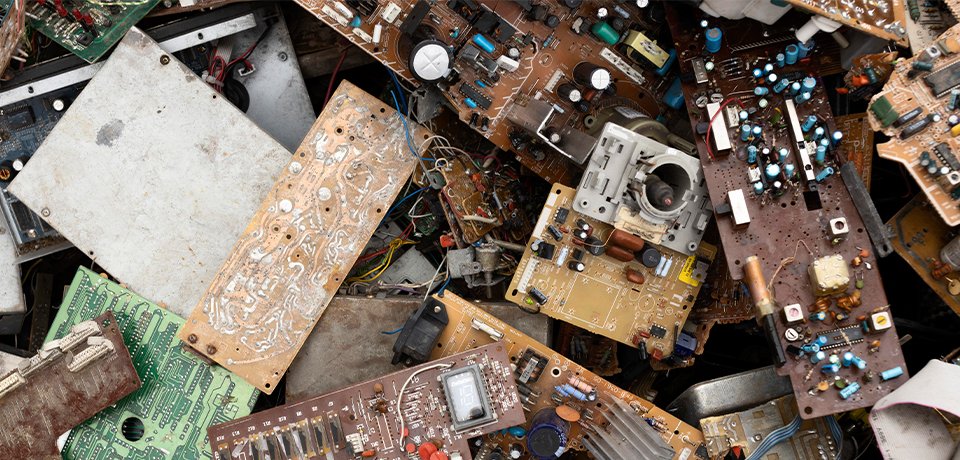
Due to the rapid developments and increasing diversity in technological products, new products enter into our lives every day. Technological products that have not exist a few years ago have become a necessity today. While developing new electronic products make our lives easier, it also leads to overconsumption. Sometimes we purchase more than one of the same product and sometimes even though we have a product that meets the needs, we may still purchase a new one.
The rapid and unconscious consumption of electronic products brings along a problem that has not existed in human life before. Electronic waste, which is one of the environmental pollution problems of our age, is getting serious day by day. Electronic waste that has completed its life cycle, its tenure is defined as e-waste.
With the recycling of technological devices, it is possible to avoid harming of the environment with electronic wastes.
What is Electronic Waste?
Electronic waste includes all the electronic devices that we use in our daily life which have lost their functionality or have completed their life cycle. Sometimes, electronic devices that has not yet reached the end of their lifetime can also turn into electronic waste. Some of the devices and equipment defined as e-waste can be listed as follows:
- Televisions and monitors,
- IT and telecommunication equipment,
- Fixed and mobile phones,
- Small household appliances,
- Fax and copiers,
- Toys, entertainment and sports equipment,
- Cables,
- Lighting equipment,
- Monitoring and control instruments,
- Vending machines,
- Medical devices.
Older electronic devices often contain plastic, metal and glass materials. Some electronic devices may even contain substances harmful to human health, depending on their area of use. E-wastes can harm nature and living things when dumped out instead of recycling. Companies specialized in recycling can ensure proper disposal of environmentally harmful substances. The valuable materials contained in e-wastes, which have lost their functionality, are undesirable or have completed their useful lifetime, can be brought back into the economy by means of recycling.
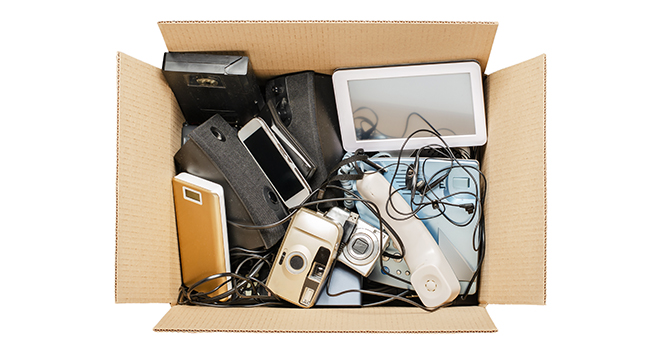
How to Recycle Electronic Waste?
Recycling of electronic wastes is carried out in a similar process as the other wastes. Due to the diversity of electronic wastes, conducting of some special processes may be required. Wastes that can be evaluated as scrap electronic devices are collected and taken to the recycling center.
Wastes brought to the electronic waste collection center are classified according to their types. For e-waste that does not fit into a certain category, a separate category called undefined is provided. The non-recyclable parts of the categorized wastes are destroyed, disposed. Wastes are treated with different procedures to recycle materials such as plastic and metal.
After the recycling stages of electronic wastes are completed, the materials obtained can be used for re-production. Using recycled materials in production saves natural resources which are already limited.
Attempting to dispose of e-wastes in an inappropriate and unconscious manner can harm the environment. Conduct of disposal and recycling processes by authorized electronic waste companies is of importance.
What is the Importance of Electronic Waste Recycling?
Some e-wastes contain many harmful substances such as cobalt, barium and mercury. Improperly disposed e-wastes harm the environment and hence, the living things. Recycling of electronic waste is of importance in respect of preventing damage to the environment and ensuring that the valuable materials in the waste are separated and reused.
With electronic waste recycling applications, energy is saved and natural resources are protected.
With the investments made in the field of electronics recycling, a large area of employment can be created. New job opportunities can be created as many employees are needed for the collection, separation and recycling of e-wastes. Materials obtained from e-waste recycling can also create a market. Unnecessary use of disposal sites can be prevented by recycling.
In order not to harm the nature and the living things, importance should be placed on the recycling of electronic wastes. Electronic waste, known as WEEE or waste electrical and electronic equipment, has an economic value and parsing thereof must be done in order to leave a livable world to the future.
What Can We Do to Reduce E-waste?
As with the other wastes, taking care may be the first step to reduce e-waste. Especially by recycling of mobile phones and computer wastes that we use every day, reuse of precious metals can be maintained. Electronic wastes that have completed their useful life or that cannot fulfill their function can be delivered to the companies that provide support for the collection of waste electronic goods.
Computer wastes contain cables, glass, aluminum, steel, copper and plastic parts. Computers bearing many valuable materials can be taken to municipal electronic waste collection centers or to the waste bins for recycling. Some technology brands can provide assistance with the collection of electronic wastes. The campaigns of the technology companies, that provide discounts when old electronic products are returned, can be followed. Thus, discounts can be provided when purchasing new products and generation of e-waste can be prevented.
Batteries are also a kind of electronic waste. By throwing the batteries into the collection bins, reaching of the harmful substances contained therein to the nature can be prevented. Battery waste bins available in public institutions and some markets can be used. You can get information about recycling parsing and collection centers by calling the call center numbered 181.
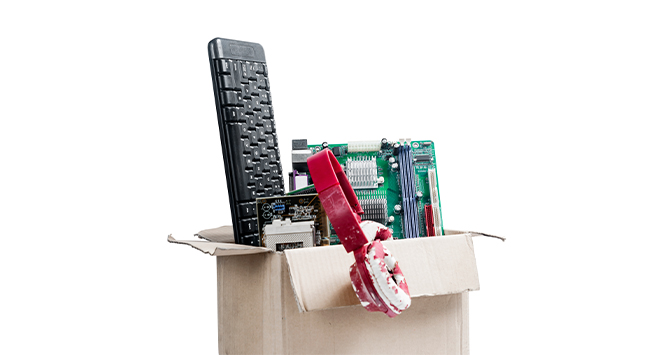
Electronic Waste in Turkey
Electronic waste is an increasingly important agenda item for Türkiye. It is observed that the amount of electronic waste is increasing rapidly in our country.
Pursuant to the electronic waste policies implemented in many developed countries, e-waste is compulsorily collected separately. By parsing of e-waste and disposal of materials that cannot be recycled by experts, the damage to the environment can be reduced.
In our country, wastes go to dumps without being subject to parsing, as the waste collection systems have just started to take shape and are not widespread yet. Waste parsing (separation) process is carried out in the refuse collection/disposal centers established only in few number of provinces. Refuse (garbage) is sold by tender, and the parsing (separation) and evaluation of useful wastes is done by companies.
In Conclusion
Waste recycling is an issue of global importance. Sustainable consumption can be supported by recycling in order to reduce the use natural resources and the damage to the environment. By limiting the purchase of unnecessary electronic goods, environmental pollution and unnecessary use of natural resources in production can be reduced. The use of energy and natural resources are indispensable components for every production activity. Careful and conscious consumption will help future generations to reach a more livable world. More successful results can be achieved with training activities on recycling.
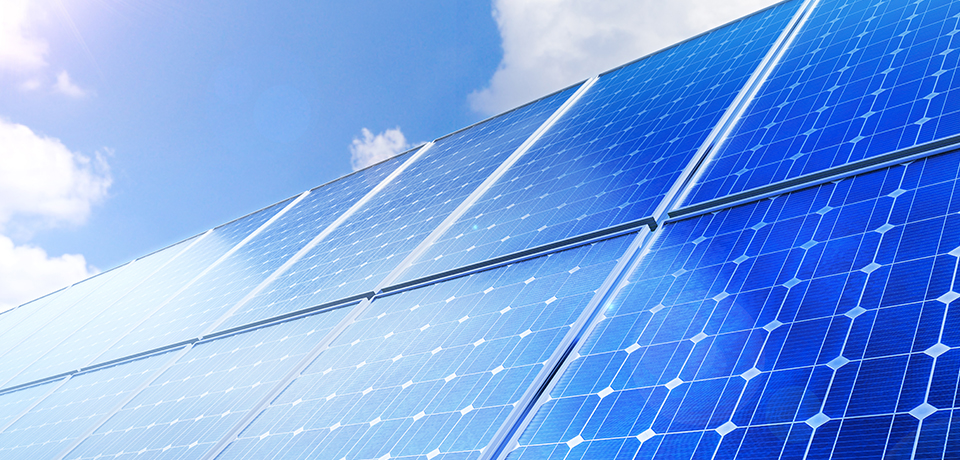 Insolation Time and Solar Energy Efficiency
Insolation Time and Solar Energy Efficiency 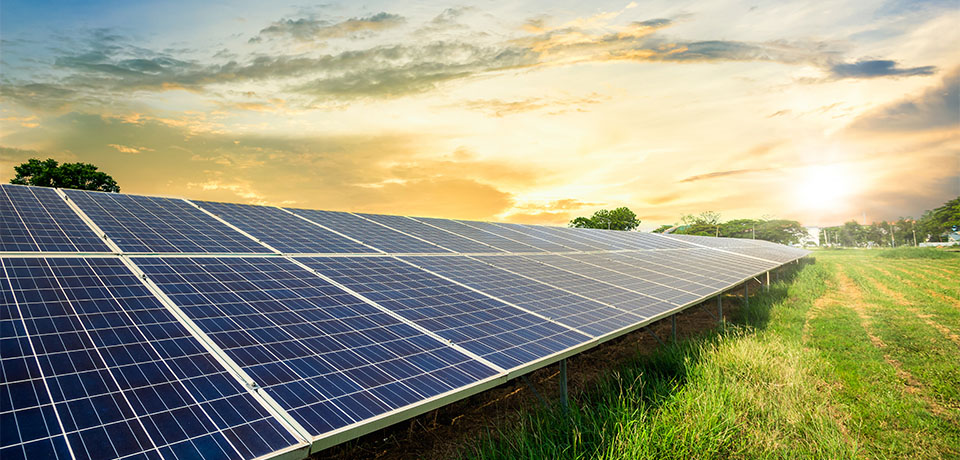 What is Solar Energy? How is Electricity Generated From Solar Energy?
What is Solar Energy? How is Electricity Generated From Solar Energy?  Renewable Energy Sources - Advantages of Renewable Energy Generation and Use
Renewable Energy Sources - Advantages of Renewable Energy Generation and Use  Geothermal Energy Potential of Turkey and its Sustainability
Geothermal Energy Potential of Turkey and its Sustainability